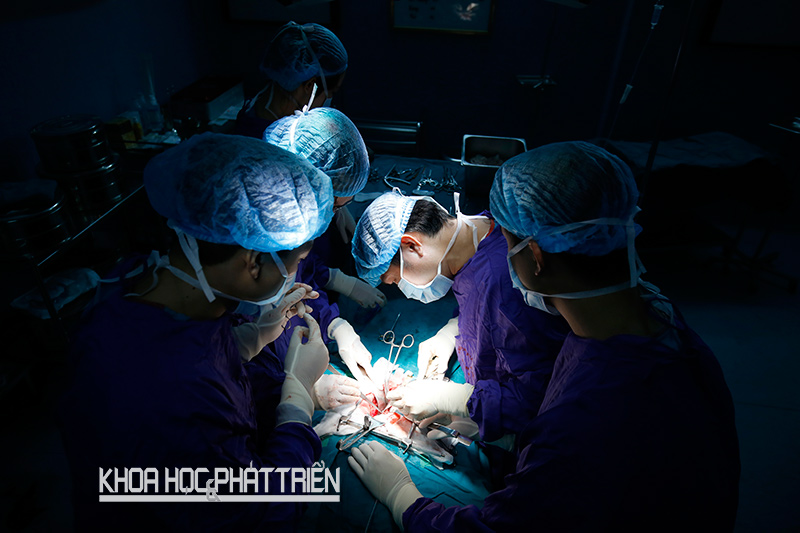VietNamNet Bridge – After 25 years of development, Vietnam’s organ transplant techniques are believed to be of a high international standard.

After a kidney transplant operation on Nguyen Hong Quan (31, from Ha Tinh) on June 30 at Military Hospital 103, Hoang Manh An, former director of the hospital, asked the patient how he felt. The patient opened his eyes and said he felt a little pain in the operating area. An then gave him more anesthetic.
“In most cases, patients receive endotracheal anesthesia. They will have no pain, but they will have to be in bed and can only sit up and get around after several days. They are vulnerable to pharyngitis, throat and even pneumonia.
“Recently, we shifted to epidural anesthesia, so patients stay awake during surgery. As they can walk early, the wounds heal quickly and they can leave hospital seven days after the surgery,” An explained to reporters after the 3-hour operation.
Kidney transplants are routine at all 18 organ transplant centers in Vietnam with two to three operations a week carried out at the 103 Military Hospital, and four to five operations at the Vietnam-Germany Hospital.
Nguyen Tien Quyet, former director of the Vietnam-Germany Hospital, said that once there is one brain-dead donor, the hospital can immediately organize four operation tables – one for a heart transplant, one for a liver transplant and two for kidney transplants.
“This is a surprise to international specialists. In the rest of the world, hospitals specialize in one organ transplant. But at the Vietnam-Germany Hospital and some other hospitals in Vietnam, we can carry out multi-organ transplants,” he said.
Vietnam-Germany performs seven transplant operations on some days, including three kidney transplants, one from live donors and two kidneys, one liver and one heart transplant from brain-dead donors.
“If we have brain-dead donors at night, we will be able to organize organ transplant tables immediately,” he said, adding that when the world needs 10-12 hours for one liver transplant case, Vietnam-Germany only needs 7-8 hours, while it needs 3-4 hours for a heart transplant case.
Tran Ngoc Sinh, secretary general of the Vietnam Organ Transplant Association, said that Vietnam has sufficient machines and equipment to carry out organ transplant operations.
“An immunological laboratory is needed to assess the suitability of tissue, donor and recipient cells, and antibody tests against transplanted tissue. Luminex, the most modern equipment to satisfy the requirements, priced at $200,000, has been used at Cho Ray Hospital and some first-class hospitals in the north,” he said.
Affirming that the Vietnamese organ transplant industry is not limited by qualifications or equipment, Quyet said what Vietnam lacks is experience. Large transplant centers in other countries handle thousands of cases, while Vietnam-Germany only deals with around 40 cases.
RELATED NEWS
Organ transplants: hope and anxiety
Cross-kidney transplant opens up opportunities for organ sourcing
Chi Mai